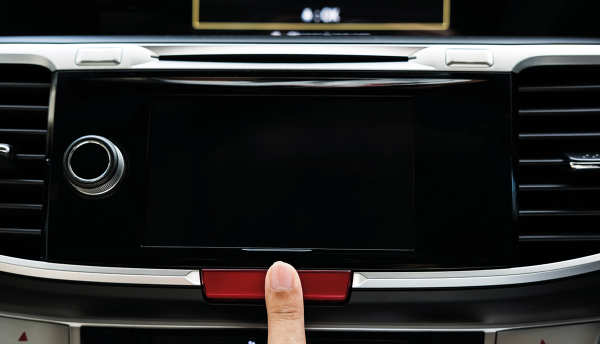
The US Patent and Trademark Office on Tuesday (9 July) granted Apple a patent for an in-car, touchscreen telematics system that would provide drivers with tactile feedback to help them keep their eyes on the road, says the company’s press release. The patent, called "Programmable tactile touch screen displays and man-machine interfaces for improved vehicle instrumentation and telematics" – or "Digital Dash”, in short – incorporates everything from laser pointer inputs to cameras that track the driver's head movements to provide innovative takes on almost all kinds of automobile interface such as controlling the temperature, wipers, and radio all from one panel.
The new patent itself describes the invention as "a revolutionary form of dashboard or instrument panel results which is stylistically attractive, lower in cost, customizable by the user, programmable in both the tactile and visual sense, and with the potential of enhancing interior safety and vehicle operation."
Significance: Apple has already started making moves towards the auto industry, and the Digital Dash patent is the latest in a series of efforts to put Apple technology under the hood. The whole concept could complement Apple's recently announced "iOS in the Car," a feature that allows control of an iPhone directly through a car’s onboard receiver. The company rolled out an "Eyes Free" mode for Siri in iOS 6 last year, and is working with car manufacturers to build support for the feature. Earlier this year, the company patented an iPhone-powered remote that could locate, unlock, and start the car, which stood as a follow-up of a patent last year that described a wireless remote for controlling a car's media center from the steering wheel.
Securing a patent does not always mean that a company is actually going to commercialise the technology. However, this one surely underlines Apple’s ambition to integrate itself even further into one’s driving experience. Besides, the company’s expert knowledge might come in handy in an industry that is believed to be a few years behind in terms of technology. While automakers failed to make their onboard computers more useful on their own, a number of companies have thrived by building dash-mounted devices, especially in the past few years as safety norms became stricter.








